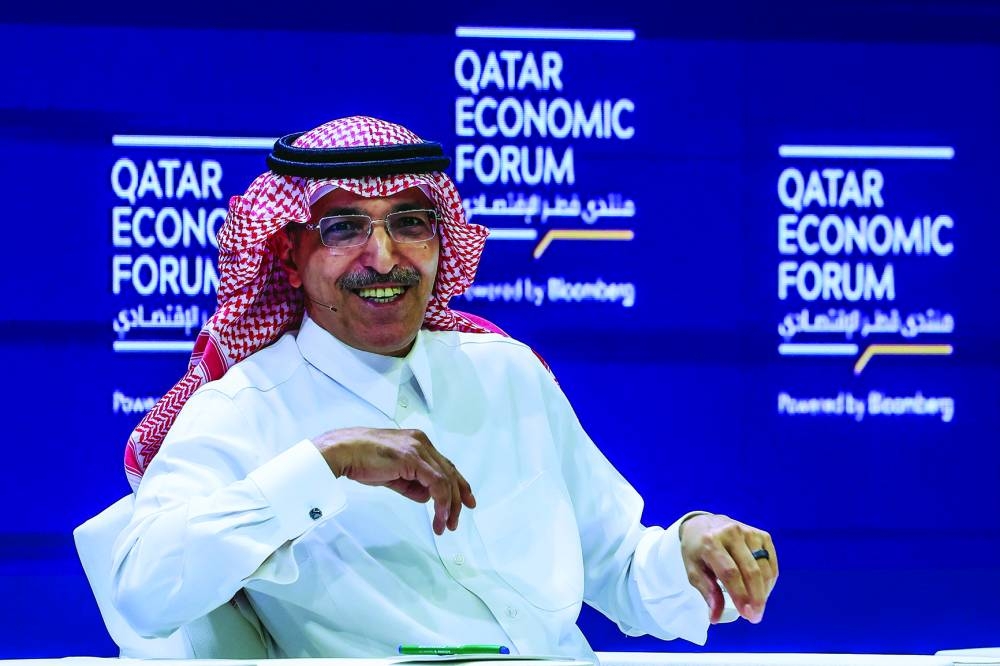
The Gulf Co-operation Council (GCC) has long-term plans and is "willing to take every step possible" for investors to do business in the region, which has become a bright spot in the world, according to Mohamed al-Jadaan, Saudi Arabia's Finance Minister.
"We are willing to take every step possible to make it easier for investors to do business in the region, that we are willing to do a lot of structural changes, including actually making it very predictable," he told the Qatar Economic Forum, Powered by Bloomberg.
Highlighting that resource richness brings with it the dependence on oil revenues, he said the region is now marching towards a proper sustainable diversified economy that enables the private sector, utilises the demography of young population who are technology savvy and who can be inventors, entrepreneurs and investors of the future.
Speaking at a panel “Reshaping Middle East Economies” at the forum in Doha, he asked policy makers to optimise the strategies to curb “economic leakage” and prevent resources or fund from being wasted.
Suggesting prudent fiscal policies, he said spending at a time of global inflation results in increased project costs, which would further fuels inflation and “overheat” economy.
He said Saudi Arabia's gross domestic product has risen more than 15% since the launch of 2030 vision, which was launched well before the Covid-19 pandemic, and issues like inflation and supply chain disruptions.
"All of these collective shocks that are facing the world calls us also to reprioritise, to look at what we are doing, and how can we actually optimise what we are doing, optimize our plans,” al-Jadaan said.
"We are not complacent, we need to push through the momentum of reforming the economy," he said, adding Saudi Arabia has adopted a conservative approach when it comes to oil revenues.
On Saudi Arabia’s ability to fund large-scale projects amid lower oil prices, he said the country has been “conservative” in its economic projections.
Saudi Arabia closed 2023 with oil revenue higher than projected at the beginning of the year, despite a 20% drop in crude prices and 17% production, he said.
“[This] basically tells you that we are not optimists when it comes to projecting and therefore committing our spent to what the revenue is. We are very conservative,” he added.
Mohamed Sulaiman al-Jasser, chairman of the Islamic Development Bank Group, said resilience is probably now what distinguishes the GCC economies, which is seen by the outside world as one bloc that has cohesive and complementary policies to really be a beacon of economic growth and development not for the region but also beyond.
"Resilience, I think is very important, and the GCC countries seem to be together moving in that direction and now they are much greater believers in their own abilities, he said.
“Our demographics are not talked about enough. Our demographics are probably our greatest asset - even more than oil for the GCC," he said, highlighting the transformative changes in the Gulf since the discovery of oil and the investments in education and human development made by the GCC.

